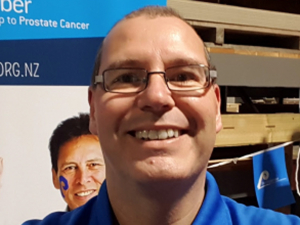Whatever the circumstances, there are always better clinical outcomes if the existence of cancer is known earlier. Our health system and government know this, and currently takes action on some cancers – for example:
- Breast cancer: Every year 3400 women are diagnosed, with 600 deaths. A comprehensive early detection programme was started in 2017.
- Colorectal (or bowel) cancer: Every year 1500 women and 1700 men are diagnosed, with 1200 deaths. A comprehensive early detection programme was started in 2017.
- Cervical cancer: Every year 160 women are diagnosed, with about 50 deaths. A comprehensive early detection programme was started in 1991.
Because New Zealand rightly values lives so much, we also have a $61 million “Road to Zero” campaign underway seeking to reduce road accidents, which last year claimed 380 lives. And a government budget since 2020 of around $61 billion to prevent deaths and protect the community from Covid-19.
So in Men’s Health Week, is clear government accepts it is worthwhile to invest early to save New Zealanders’ lives – except when it comes to prostate cancer, the third-greatest cause of cancer death in men after lung and bowel cancers.
More than 4000 men are diagnosed and more than 700 die from the disease every year. Many of these deaths are preventable. That’s why we have asked the government to take the first steps towards a comprehensive early detection programme for prostate cancer.
The time is right. Significant advances in technology and improved diagnostic methods mean previous risks have been reduced, and the latest research clearly shows that a comprehensive early-detection programme holds the promise of halving mortality from the disease.
We’ve recommended that such a programme be approached in two stages.
Stage One would see an initial trial screening project undertaken in at least two regions, one in the North and one in the South Island. This would be based on methodology used by the European Union (its PRAISE-U trial), with information on prostate cancer, early detection and a PSA test being provided to groups at higher risk of significant prostate cancer by a body such as the already existing National Screening Unit. These groups are men over 40 who have the gene variant BRCA2, men over 45 with a family history of prostate cancer, and all men over 50.
Following the test, men with low to moderate PSA (less than 3 nanograms per millilitre) may need nothing more beyond being retested after 2-5 years depending on their age and PSA score.
Men with a high PSA will have a risk assessment based on family history, prostate volume, PSA density, urinary symptoms and other risk factors. About a third of these men will be expected to need no further interventions.
Those still at intermediate or high risk following the risk assessment will have a multi-parametric Magnetic Resonance Imaging (mpMRI) scan. Images of the prostate will be scored on the likelihood of cancer being present (called a PIRADS score). More than half of men who have an mpMRI will have a low PIRADS score requiring no further interventions.
Men with an intermediate or high PIRADS score will have a biopsy. Some of these biopsies will lead to a prostate cancer diagnosis but even among this group of men it is estimated that about a quarter will require no immediate treatment beyond “active surveillance”, i.e. regular appointments to monitor the prostate.
In total, about one third of men who have an mpMRI scan are likely to have prostate cancer, three-quarters of whom will need active treatment.
Along with collaboration and engagement with the European Union trial, the two trials (or more) in New Zealand will assist in the formation of a strategy and framework that can be rolled out on a nationwide basis.
As there is already significant early detection infrastructure in place for other cancers we believe this Stage One initiative could leverage off existing technology and infrastructure, keeping the marginal cost relatively low.
For Stage Two, the government could consider funding key diagnostic procedures for all men in the public sector, particularly mpMRIs, trans-perineal targeted biopsies, and PSMA-PET scans (which can tell if the cancer has spread beyond the prostate) so men with advanced disease do not have to go through unnecessary radical treatment.
The Australian government already funds these initiatives and New Zealand men deserve the same respect from our government.
We appreciate these Stage Two initiatives may involve more investment, and for that reason our preference is that Stage One trials take priority.
Funding of early detection programmes for prostate cancer is an urgent equity issue that needs addressing. Many New Zealanders support this. A petition to Parliament seeking a funded, risk-based equitable prostate cancer testing regime has attracted around 30,000 signatures (online and physical).
While there was no funding for such a programme in Budget 2023 we believe existing funding may be able to be tapped to fund the Stage One trial. Government needs to act now to save mens lives.
Danny Bedingfield is president of Prostate Cancer Foundation New Zealand



















